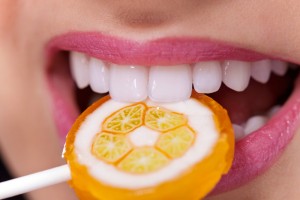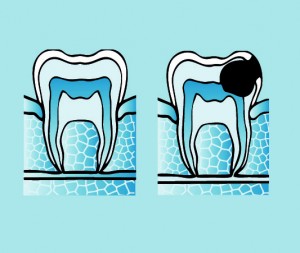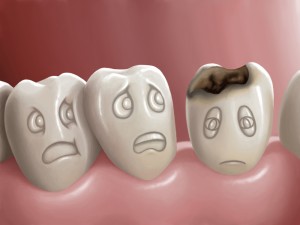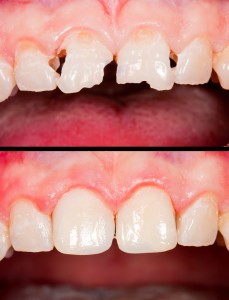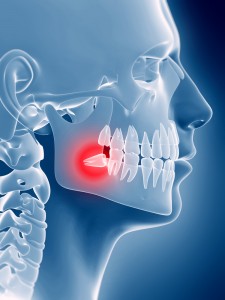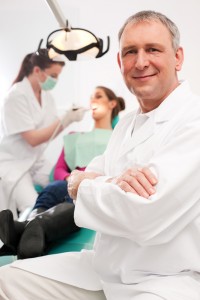While many Americans are able to say that their oral health is relatively healthy or, at least, looks relatively healthy, there are many that cannot say the same. There are numerous disadvantages of poor oral care. For example, oral health is taken into account when potential employers are planning to hire even the most minute employee for lower scale positions. This is an overlooked fact by the Americans that do not suffer from this particular physical problem. Of course, unemployment is not the only thing to stress about when your mouth is not properly taken care of. There are many diseases that accompany underprivileged mouths that can not only harm the body, but possibly cause death. In fact, a 12-year-old boy from Maryland died from a tooth infection because his mother could not afford to take him to the dentist. Emergency visits to the ER due to oral health have skyrocketed these past few years. Why is all of this happening? It seems that dental insurance and the high cost of regular dental visits play an extremely large factor. Continue reading
Why Denying Yourself Dental Care Due to Cost is the Worst Course of Action
Caring for a Chipped or Broken Tooth
Chipped and broken teeth are among the most common issues we see in patients at our Roseville dental practice. Although your teeth are covered by some of the strongest minerals in the body, they do have their limits. Biting down on hard or crunchy food items can often cause a tooth to chip or break completely. It’s important to attend to a chipped tooth as promptly as possible. Not only does it mar the beauty of your smile, it can also lead to further tooth damage and the possible loss of the entire tooth.
So, at the first sign that you have chipped a tooth, contact our office for an appointment at your earliest convenience. Then do the following things in the meantime in order to help minimize the damage and discomfort you are experiencing.
(1) Rinse out your mouth with a solution of warm water mixed with half a teaspoon of salt in order to ensure that no broken pieces remain that can irritate your gums or tongue. If you are experiencing pain, take an over the counter pain reliever containing acetaminophen.
(2) If the chip causes a jagged or sharp edge, invest in some sugarless chewing gum or wax paraffin from the drugstore. Use either of these substances to form a temporary covering over the break to prevent further mouth irritation. Continue reading
Why is Candy Bad For Your Teeth?
Sometimes a sugary treat is necessary, but eating too much candy can create life-changing damage to the teeth. Here are a few different reasons and explanations on the way that certain candies can damage your teeth.
The Sugar
A bacteria in our mouths,”streptococcus,” loves to feed on the sugar that we knowingly accept is in the candy we enjoy so much. As it feeds on the sugar, it is broken down into acid that eats away at our tooth enamel. The longer that the sugar lingers in your mouth, the more exposure to acid. Brush your teeth or drink some water to make sure that the teeth have a quick rinse from the sugar and that the candy is not stuck in the crevices of your molars. Continue reading
Why Is It Important To Take Care Of My Cavities Sooner Rather Than Later?
Dental health is surprising closely linked to the health of the rest of the body. Always remember that a healthy mouth is a signal of a healthy person. Once a person realizes that they have a cavity, either from pain in their mouth or from learning it from a dentist, they might not be sure if they want to have it taken care of right away. Some fear have to take care of these problems, as they are afraid that having a cavity filled will painful. Others may not be sure if they can afford it, and often choose to put off taking care of the cavity.
However, the longer the wait, the more time the cavity has to get worse. Those who want to put off the procedure to save money or pain are not doing themselves a favor in the long run. Having a cavity filled is a fairly simple and inexpensive procedure. However, those who leave cavities on their teeth often eventually need a root canal. This is a far more expensive and far more painful dental procedure that can often be avoided by having the cavity taken care of early on. Continue reading
Tooth Decay Will Not Get Better Unless You Treat It
Some people tend to brush off health issues and not take action, as they usually get better by themselves. A person may, for example, ignore a small wound or a cold until it heals or eventually goes away. Unlike some health issues that go away when you ignore them, a cavity or tooth decay does not spontaneously get better and will only get worse, so action is needed the moment your dentist detects one.
What Are Cavities?
Cavities are holes in the teeth which are caused by a combination of bacterial growth and acidic environment. This is formed when microorganisms in your teeth surface become active (usually as they are regularly exposed to and feed on sugars in your mouth). When they do so, they start eating away at the hard tissue of your teeth, causing holes to form. A cavity may start out small, but when left unchecked and untreated, will simply continue to grow and cause more and more problems. Continue reading
Root Canal Vs Tooth Extraction
When there is a serious tooth infection, dentists will either extract the teeth recommend an endodontic treatment, which is otherwise known as a root canal. Root canals are done by endodontists, or dental health professionals who specialize in the procedure.
Is Root Canal A Better Option?
A root canal is done by removing the infected or inflamed pulp from inside the tooth. The endodontist then carefully cleans the area inside of the canal, fills it up, and seals the space. Then, the tooth is restored using a filling or a crown.
A root canal is often recommended because it saves the natural tooth. While having one’s tooth extracted may seem like an easier and quicker option, a root canal has advantages over extraction. It keeps your teeth as is, maintain your natural smile. It also promotes normal sensation and biting and promotes proper chewing. Continue reading
Stop Grinding Your Teeth!
Most people clench and grind their teeth from time to time, and doing so occasionally does not cause any harm. Constant grinding, gnashing and clenching (also known as Bruxism), however can cause problems and complications to your oral health.
What Causes Grinding Anyway?
Teeth grinding has always been attributed to crooked teeth or abnormal bite, but it also occurs as a result of anxiety and stress. While many people clench their teeth during the day, the bulk of teeth grinding usually happen at night during sleep, so it may be difficult to tell if you are among the many that do so.
While you may not catch yourself doing it in your sleep, you may notice some symptoms right when you wake up, which serve as telltale signs for Bruxism. Continue reading
Repairing A Chipped Tooth
At some point in our lives we may go through an experience where a tooth or teeth gets cracked, chipped, cracked or broken. This could be the result of an accident, like falling, or forcefully biting down on something hard.
Strong and hard as our teeth are, being the most mineralized tissue in the body, it does have its limit especially if it has already developed some decay. So if you break or chip a tooth, see your dentist the immediately to get proper treatment and prevent further damage or infection. The sooner you see your dentist, the better the chances of repairing or saving the tooth.
First Aid Tips When Chipping A Tooth
If you chip or break a tooth, follow these home remedies to reduce any discomfort and prevent further damage. First, make sure you check your mouth to see if there are any tooth fragments left, because you definitely want to avoid swallowing them.
Once you have checked your mouth, wash and rinse with salt water solution (1 tbsp of salt in a cup of warm water) to disinfect the tooth and the surrounding area. You may experience some pain, especially if the break exposes tooth nerves. When this happens, you can take an over-the-counter pain reliever to relieve the discomfort. Continue reading
Impacted Teeth: How Can You Deal With Them?
Our last set of teeth grows on each corner of our mouth when we reach the ages 17 to 26 (which is incidentally know as the Age of Wisdom, hence they are called our wisdom teeth. Since they grow last, there may not be enough room in the mouth for the each of the tooth to break. Thus, it can result in crowding with the other teeth, or it could grow at an angle under the gum causing discomfort, pain, irritation and infection.
When a wisdom tooth partially breaks the gum line, then it is partially impacted, but if the tooth never breaks through, then it is fully impacted. In any case you are unfortunate enough to suffer from either one (or even both), then you have an impacted wisdom tooth which can lead to serious health risks and complications if left untreated.
Symptoms of an Impacted Wisdom Tooth. You may already have an impacted wisdom tooth and not be aware of it. Here are some symptoms that you should take seriously, pain in the mouth or jaw line or notice tenderness and swelling in the gums with some bleeding; headaches emanating from your temporomandibular joint (which connects your jaw to your skull); bad breath and an unpleasant breath and taste in the mouth. Continue reading
What To Expect At Your Sedation Dentistry Appointment
Some dental procedures are done with local anesthesia, but even without the presence of pain, you may feel anxiety and fear which can complicate the treatment. Today, however, patients can now request to be sedated instead of just getting general anesthesia, in order to keep them calm and relaxed throughout the procedure. If you elect to undergo a sedation dentistry appointment, here are some things you may expect.
Come With A Friend
Before the procedure, your doctor will also ask you to come to the clinic accompanied by a friend or a family member to look after you after the procedure and help you go home.
To help you relax even more, most doctors allow you to bring things, blankets, stuffed toys, music player with headphones as long as they will not interfere with the treatment. Some even allow companions to be in the treatment room if that will help you relax better. Continue reading



